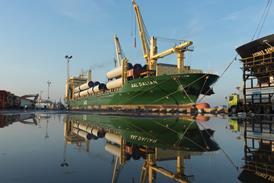The European Commission (EC) has extended the validity of block exemption for liner shipping consortia for another four years.
The extension means liner shipping consortia can provide joins services without infringing European Union (EU) antitrust rules that prohibit anticompetitive agreements between shipping lines.
The regulation, known as the Consortia Block Exemption Regulation (CBER), has been extended until April 25, 2024 and allows liner shipping operators with a combined market share of below 30 percent to enter into cooperation agreements to provide joint liner shipping services. These agreements, however, cannot include price fixing or market sharing.
Since the introduction of the regulation in 2009, the number of liner shipping alliances has grown steadily.
In September 2018, the EC launched a public consultation and conducted an evaluation of the CBER. The EC found that despite evolutions in the market (increased consolidation, concentration, technological change, increasing size of vessels) the CBER is still fit for purpose.
More specifically, the commission found that the regulation results in efficiencies for carriers that can better use vessels' capacity and offer more connections.
The CBER had previously come under fire, with commentators arguing that the alliances have led to falling service quality and productivity. Others have criticised the regulations for leading to an unbalanced market.
The International Federation of Freight Forwarders Associations (FIATA), speaking on behalf of its European members, said that the EC’s decision to extend the CBER’s period of application has been challenged by the European freight forwarding community.
However, given “the unprecedented global crisis in light of the ongoing Covid-19 pandemic,” Stéphane Graber, director general of FIATA noted: “It is crucial that the entire maritime freight community, including shipping lines and freight forwarders, unite to ensure the efficient movement of the world’s cargo to deliver essential goods and relief.
“The cited objectives of the EC in ensuring the regular transportation of goods along particular routes may be particularly relevant in this regard.”
However: “FIATA urges all actors within the maritime activity to exercise attention to ensure that the EC’s expected outcomes set by the EC are met,” added Graber.
“It is important there is no misuse of the CBER, and that all companies engage in fair competition. This is the time for all stakeholders to work together to fulfil their essential role of ensuring the fluidity of the world’s supply chains.”
















